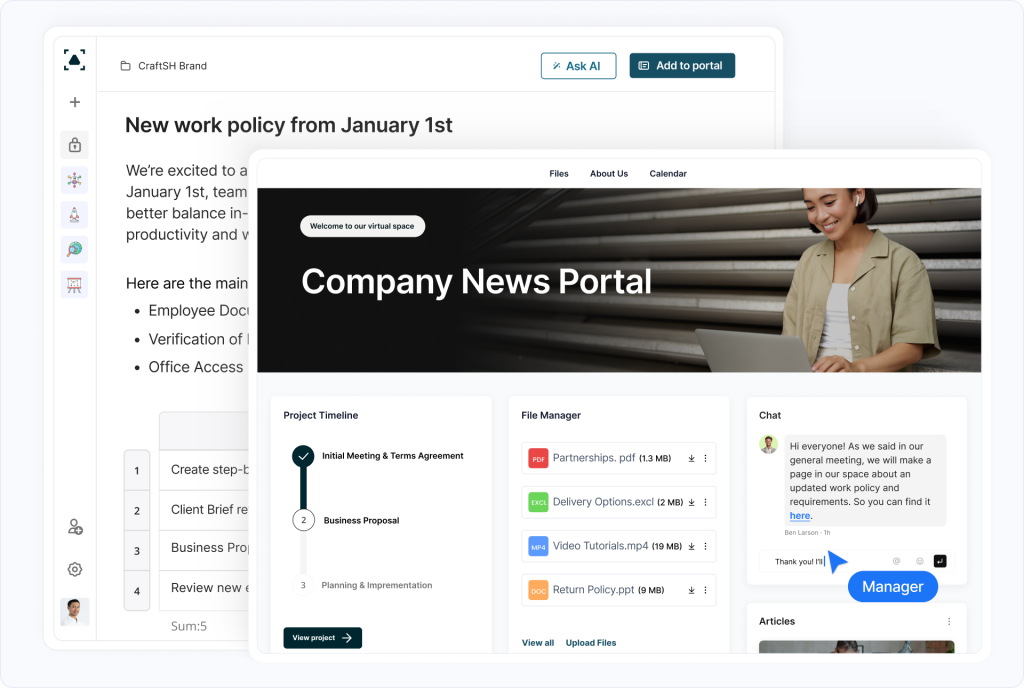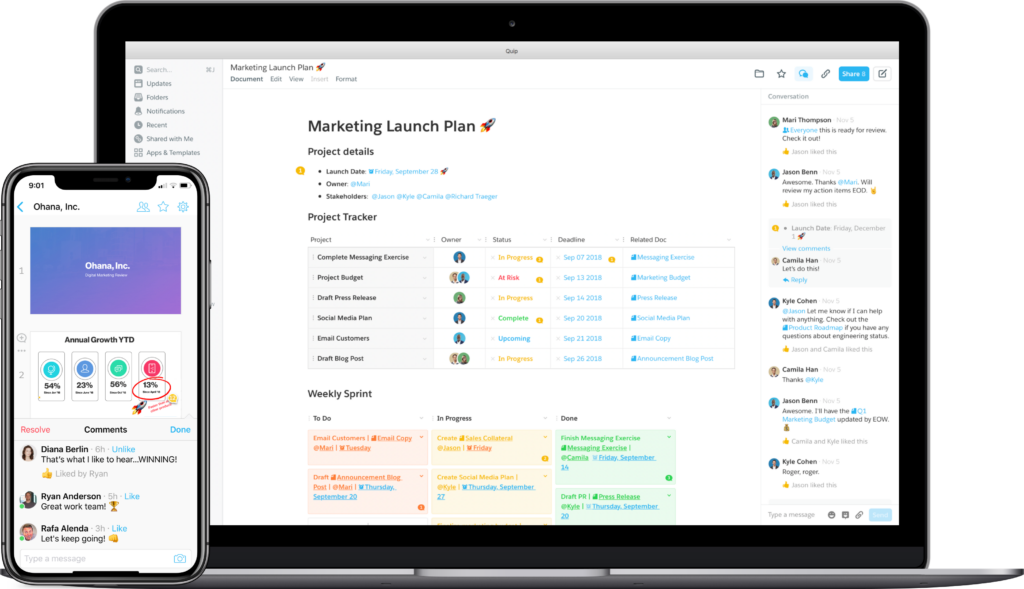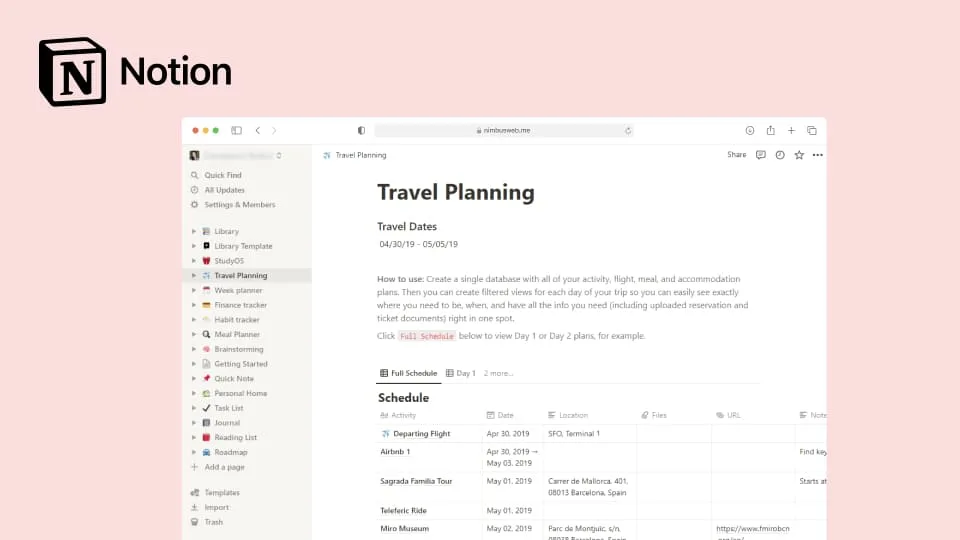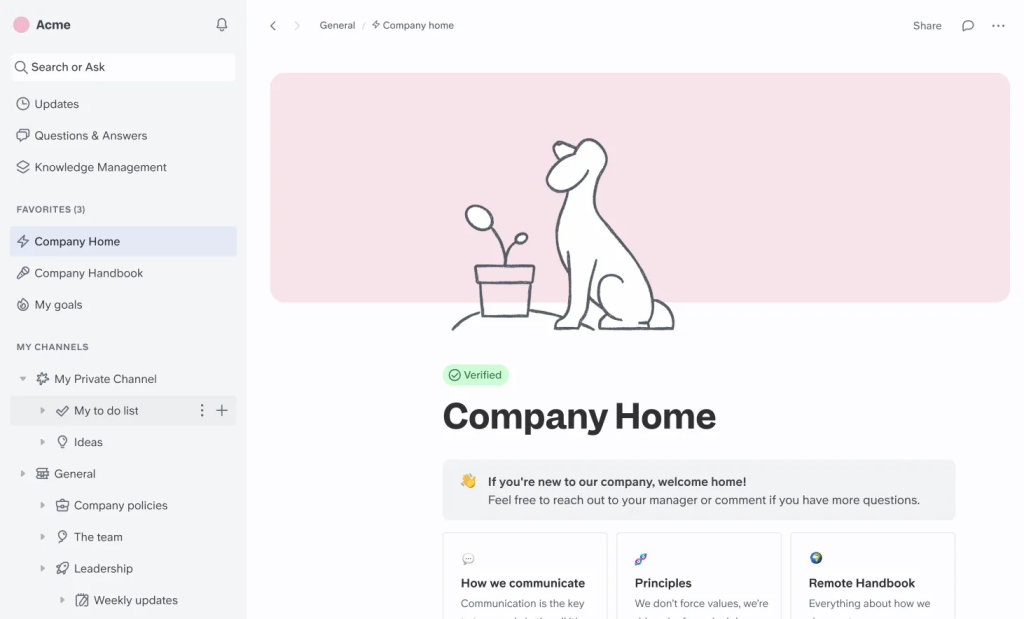
Finding the right tool to organize work, collaborate, and share knowledge is crucial for any team. Atlassian’s Confluence has long been a popular choice, offering features for project management, document collaboration, and centralized information storage. Confluence allows users to create “spaces” for each team or project and create “pages” within those spaces. The software is widely used, with 83% of Fortune 500 companies using at least one of Atlassian’s products.
However, Confluence has its drawbacks. Users often find its search functionality lacking and its wiki directory structure cumbersome and difficult to navigate. In a rapidly evolving work environment where remote and asynchronous collaboration has become the norm, businesses are increasingly seeking alternatives that are easier to use and offer more intuitive features. So choosing the most appropriate and fitting alternative for facilitating your team’s collaboration can turn into a real challenge. If you are struggling with selecting what platform will work best for you or if you want to switch from Confluence to other alternatives, keep reading.
5 Best Confluence Alternatives
1. FuseBase
Best for: Internal documentation, team, and client collaboration
Price starts: from $38/month per team
FuseBase provides users with a powerful solution for knowledge sharing and creating an information hub for your team and clients. Use a workspace area to craft any content you need for the team. And client portal area — as a knowledge base for your clients. If you are worried about privacy content, you can easily create pages with granular permissions both for teams and clients. Whether for external or internal purposes, from blog posts to SOPs or company wikis, FuseBase is suitable for all sorts of knowledge management efforts. Don’t hesitate to compare FuseBase and Confluence.

2. Quip
Best for: Project management and connecting remote workers.
Price starts: from $10/month per user
Quip is an online collaboration platform for project management and creating, editing and collaborating on documents, spreadsheets and presentations. Quip provides various useful features, so it can serve as a Confluence alternative. However, it doesn’t fit perfectly with big teams. Moreover, Quip’s strengths are in its integration with Salesforce data, so it’s the most useful for Salesforce-powered companies.

3. Slab
Best for: External and external content management
Price starts: from $8/month per user
Slab is a platform for creating and managing content that lets you build and organize information for the whole company. It’s an easy tool to set up a well-designed knowledge base with a simple sidebar for accessing different sections.

4. Notion
Best for: Internal documentation and team collaboration
Price starts: from $11,50/month per user
Notion is a software platform for creating content and managing projects. Teams of all sizes use it to create, organize, and share content and to manage various projects. Its strong databases and flexible organization make it a good choice for building knowledge bases, though the lack of custom domain and white-label options makes it less ideal for customer-facing knowledge bases.

5. Slite
Best for: Keeping your knowledge base fresh and trustworthy with verification features.
Price starts: from $10/month per user
Slite’s verification feature may not be unique, but it’s essential for maintaining accurate information in a knowledge management app. Its document editor includes an AI assistant for polishing and formatting content, and automation helps handle repetitive tasks. With Slite, you can easily organize information into flexible collections, enhance content with visuals, and smoothly import existing documents from other platforms.

Choose the Best Confluence Alternative for Your Team
There are many alternatives to Confluence, each offering different features to meet various needs. So, how do you pick the right one for your team?
Set clear goals. Identify the challenges a collaboration platform can address, then outline the features that would help. Each Confluence alternative has its own strengths and weaknesses, so it’s important to understand what your team needs for improved collaboration.
If your primary aim is to boost productivity and organize information in multiple formats, FuseBase is an ideal choice.